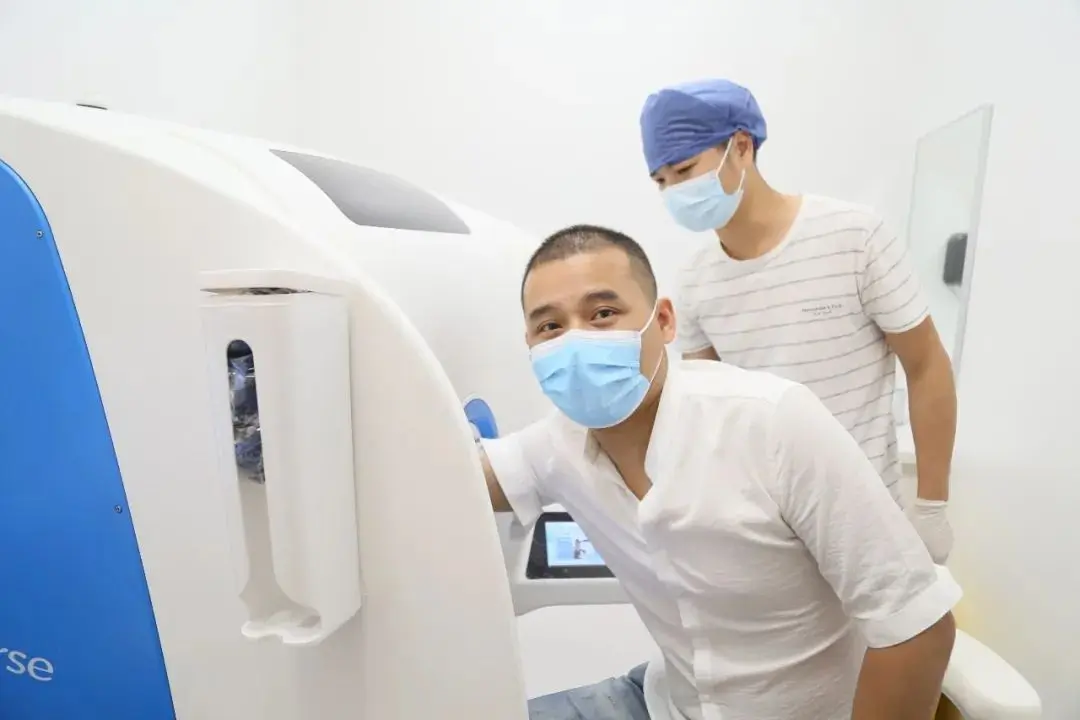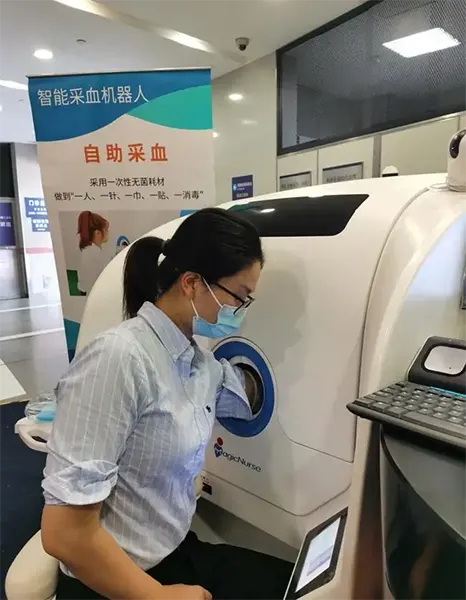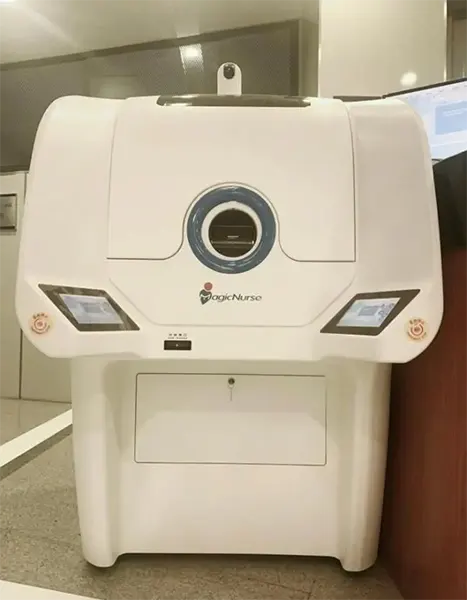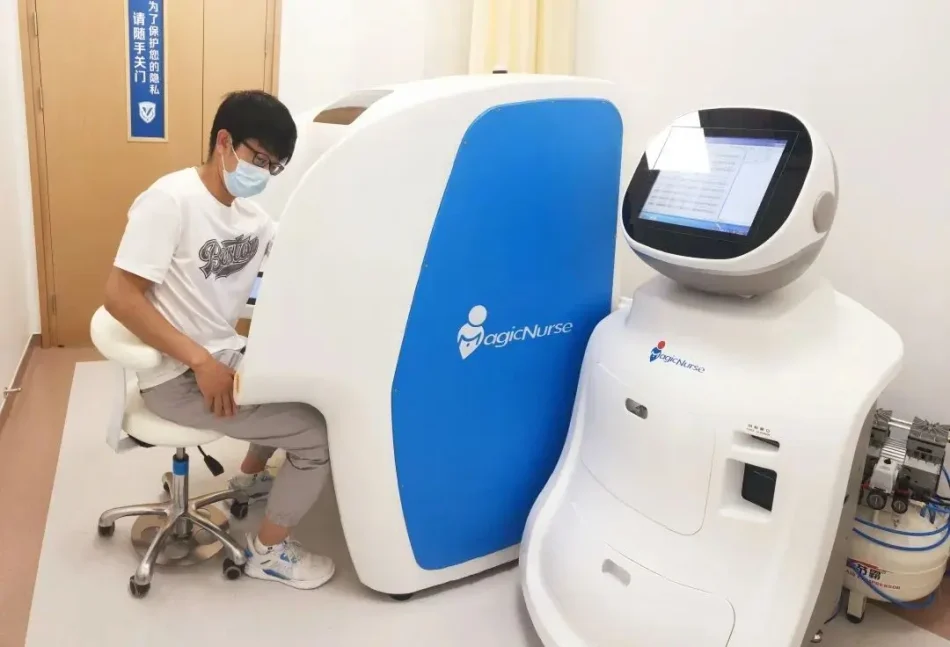Recently a video showing an automatic blood collection robot resurfaced on social media sites. Firstly the robot identifies your blood vessels, then uses disinfectant on the area; lastly it inserts a needle and starts to draw blood.
There’s something unnatural and unnerving about watching needles go into human skin, a common fear of many people, and it seems even worse when a robot arm is doing the work.
It was only a few years ago when automated blood drawing robots were put into use in places like The Fourth Affiliated Hospital of Zhejiang University School of Medicine in China. The robot even applies a plaster on the skin to stop bleeding afterwards. For the procedure, a smart voice guides you through the process, and the patient shouldn’t experience too much pain due to the accuracy of the machine. The whole blood sampling process takes less than a minute.

Some Chinese netizens expressed their worries that the machine might malfunction.
One person remarked, “Is this a thinking machine? What if it breaks and the needle doesn’t come out, what could we do?”.
“It’s a bit scary. I’d rather be poked a few more times by a pretty nurse,” said another.
It seems that some international netizens were more open to the idea, with one commenting that he would trust the machine more than some nurses he has come across, as new nurses often cause bruising due to lack of experience.
Personally I wouldn’t want to be the first person testing out these machines, but if they were proven to be accurate and better than a human, it would make sense to use them in hospitals which are facing staffing shortages and burnout by staff. The obvious advantage of the robot is that it never burns out and gets tired like a nurse might, it can always perform to a set standard. The disadvantage is that it can’t necessarily stop if it does encounter an error.

It is essentially the same with other job sectors, when it comes to automation replacing humans. Will nurses start to lose their jobs if more and more automation is put into use in hospitals and clinics in the future? Or will these devices save them valuable time so they can focus on providing other care services to patients instead?
People are generally resistant to change, and dislike the idea of automation taking over human work. It might be a case that this type of automation only has a positive influence on the new generations and not the old, and so will take a longer time to penetrate the medical industry, a place where trust and competence is of the upmost importance.

Logically such a machine seems like it would save time, but is the cost worth it in the short term? Thinking much longer term, do we need to replace everything humans do with an automated process? What happens when everything we do is replaced by AI and robots? Will there be any purpose for humans without work? These questions are reverberating around everyone’s head lately with the massive advancement of AI in the last two years, with services like ChatGPT leading the way in disrupting society’s balance.








